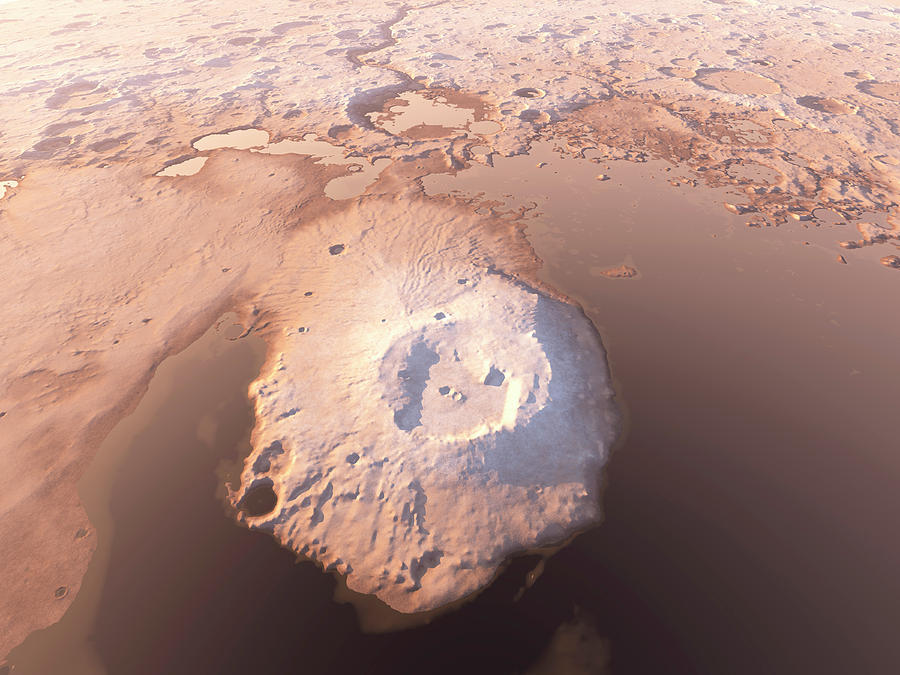Discovery of Liquid Water on Mars
Scientists have uncovered a reservoir of liquid water deep within Mars’ rocky outer crust. This significant discovery was made through an analysis of data from NASA’s Mars Insight Lander, which has been studying the planet since 2018.
Data from NASA’s Insight Lander
The Insight Lander, equipped with a seismometer, recorded vibrations known as “Mars quakes” from deep inside the planet over four years. By analyzing these seismic waves, researchers detected signals that indicate the presence of liquid water.
First Evidence of Liquid Water on Mars
While previous studies found frozen water at the Martian poles and water vapor in its atmosphere, this is the first evidence of liquid water on the planet. The findings, published in the Proceedings of the National Academy of Sciences, reveal that the water reservoirs are located about 6 to 12 miles (10 to 20 kilometers) beneath the surface.
Understanding the Martian Water Cycle
The discovery is crucial for understanding Mars’ climate, surface, and interior evolution. According to Dr. Vashan Wright, lead researcher from UC San Diego’s Scripps Institution of Oceanography, the findings also help answer the question: “Where did all the Martian water go?”
Mars’ Ancient Water History
Mars, once home to rivers and lakes, has been a desert for the last three billion years. Some of its water was lost to space when the planet’s atmosphere eroded. However, as Prof. Michael Manga from the University of California, Berkeley, explains, much of Earth’s water is underground, and Mars likely follows the same pattern.
Potential for Similar Water Reservoirs Across Mars
The study suggests there may be other water reservoirs across Mars, potentially enough to cover the planet with a layer of water more than half a mile deep. However, this water is located deep within the crust, making it difficult to access for potential human colonization.
Implications for the Search for Life on Mars
The discovery opens new possibilities in the search for life on Mars. Liquid water is essential for life, and if habitable environments exist on Mars, they may now be deep underground.





